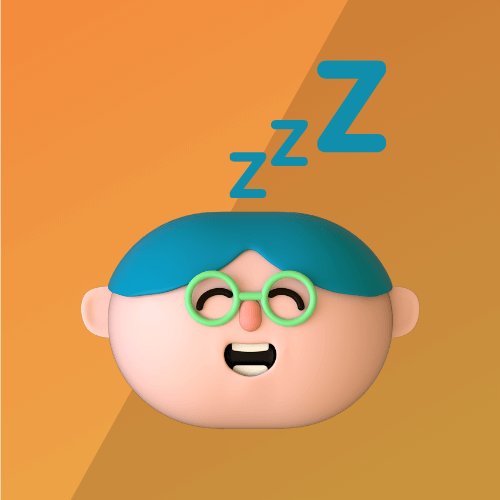
Do you feel it difficult to stay awake and study actively, after few hours that you start studying?
Can’t remember exactly what you are studying?
In this blog post, we will explain how to stay awake while studying.
how to stay awake while studying?

If you find it difficult to just stay awake while studying, try the following strategies to help you stay awake and focused.
- Get quality sleep.
- Follow the Pomodoro technique.
- Walk outdoors while studying.
- It should be well lit.
- Study in the correct posture.
- Do not use the bedroom.
- Drink plenty of water.
- Eat a balanced diet.
- Get out of the traditional study pattern and study actively.
- Organize a study group.
- Exercise.
- Change the topic of study.
- Chunk the lesson being studied.
- Take a short nap when tired.
- Take a bath.
- Listen to music.
- Read aloud while studying.
- Wash your face with fresh water.
1. Get quality sleep.
The main reason for feeling drowsy while studying is not getting enough sleep at night.
If you get enough quality sleep you will wake up fresh and energetic.
With a fresh mind, you can focus well on your studies.
The ability of a fresh mind to retain information is also high.
Getting 7 to 8 hours of sleep each night is essential for quality sleep.
Sleep also has a direct effect on attention and memory.
Even if you think that working continuously on a daily basis is productive, it really causes to decrease your performance.
And quality sleep is essential to staying healthy.
Therefore, prioritizing sleep is the most effective way to stay awake as you learn in the short and long term.
Research has shown that getting quality sleep at the end of your studies enhances memory.
How to get quality sleep?
- Choose a quiet and dark place to sleep. It causes you to fall asleep naturally.
- Make sure you get at least 7 to 9 hours of sleep.
- Go to bed at the same time every night. Then your brain is ready to feel sleepy at that time every day. It leads to quality sleep.
2. Follow the Pomodoro technique
What is pomodoro technique?
The Pomodoro Technique is a time-management method that developed by Francesco Cirillo.
The Pomodoro Technique means breaking your workday into 25-minute blocks you work for 25 minutes and then take a short break.
This is repeated throughout all the day. These 25-minute work sessions are called “Pomodoros
How pomodoro help to stay awake
The Pomodoro Technique help you to stay awake by keeping your brain engaged and active, avoiding fatigue, providing structure, helping you avoid distractions, and also preventing burnout.
How use pomodoro techniqu to stay awake?
1. Set a timer for 25 minutes and start working on a task.
2. Avoid distractions, such as social media, email, or phone notifications.
3. When the timer goes off, take a short break for 5-10 minutes.
Use the break to move around, stretch, or do something enjoyable to recharge your energy.
4. Repeat steps 1-4 for several Pomodoros, depending on your needs.
5. After four Pomodoros, take a longer break of 20-30 minutes to rest and refresh.
During your longer break, do something relaxing or enjoyable to help you recharge.
Repeat the process throughout the day, adjusting the length of the Pomodoros and breaks as needed.
Stay hydrated and nourished to help you stay alert and focused.
Also keep in your mind that the Pomodoro Technique is a tool to help you manage your time and stay focused.
It’s important to adjust it to fit your needs and workstyle.
3. Walk outdoors while studying.
If you feel drowsy while studying, another thing you can do is get up and walk around for a while.
Then due to the good circulation of blood throughout the body, drowsiness decreases.
It is best to walk for about 10 minutes outdoors naturally in the fresh air.
If you do not have space, you can walk around the room with your book and study when you feel sleepy.
In addition to helping you stay awake while studying, the outdoor walk can also help ease exam time stress and improve your ability to remember what you are learning.
More- https://www.ncbi.nlm.nih.gov/pmc/articles/PMC5919946/
4. Study Space should be well lit.
A well-lit place can help you stay awake while studying because it provides adequate lighting for your eyes and brain, reducing strain and fatigue.
Insufficient lighting can cause eyestrain, headaches, and drowsiness, making it difficult to concentrate and retain information.
Additionally, bright light exposure can help regulate your circadian rhythm and increase alertness, which can improve your study performance and help you stay awake during long study sessions.
Does bright light make you awake?
Yes, bright light can make you more awake and alert, especially during the day time when your body naturally expects to be awake.
So day time is best time to study.
Also bright light exposure helps to regulate the body’s internal clock, or circadian rhythm, which controls sleep-wake cycles and other bodily functions.
In addition bright light exposure can also increase the production of neurotransmitters such as serotonin and dopamine, which can improve mood, energy, and concentration.
Finally, studying in a well-lit environment can help you stay awake and focused, and improve your study performance.
5. Study in the correct posture.
Maintaining the right posture while studying not only benefits to your physical health, it also can also help you stay awake and alert throughout your study session.
How do keep posture while studying?
It is important to keep your back straight, shoulders relaxed, and feet flat on the ground.
Also Additionally, taking frequent breaks to stretch and move your body can also help prevent fatigue and improve focus.
Does sitting posture affect study?
Simply Yes, sitting posture can have a significant impact on your study performance.
Poor posture, such as slouching or hunching over, can lead to discomfort, pain, and fatigue, which can negatively affect your concentration and productivity.
On the other hand, maintaining a good sitting posture with your back straight, shoulders relaxed, and feet flat on the ground can help improve blood circulation, prevent muscle strain, and increase oxygen flow to the brain, leading to better study performance.
6. Do not use the bedroom.
Are you sleep and study in the same room?
If yes,their is question.
Should you study in your bedroom?
It’s generally not recommended to study in your bedroom.
Studying in a bedroom may not be ideal for staying awake and focused.
Because bedrooms are often associated with relaxation and sleep, which can make it difficult to maintain the level of alertness needed for effective studying.
It is recommended to study in a dedicated study space that is well-lit, quiet, and free from distractions to provide a conducive environment for effective learning.
If you are studying in bedroom there following disadvantages too.
What are the disadvantages of studying in a bedroom?
- Association with relaxation and sleep: As I said above Your brain associates the bedroom with a place of rest and relaxation, making it difficult to switch to a focused and alert mindset for studying.
- Distractions: Bedrooms can be filled with distractions such as TVs, video games, or your bed, making it difficult to concentrate on studying.
- Lack of structure: Studying in a bedroom lacks the structure and discipline that comes with a dedicated study space, making it easier to lose focus and procrastinate.
- Comfortable posture: Studying in bed can lead to a relaxed posture that may not be conducive to concentration, and can even contribute to drowsiness.
- Poor lighting: Bedrooms may not have adequate lighting for studying, which can strain your eyes and cause headaches.
- Lack of motivation: Being in a place where you usually relax or sleep may not provide the motivational environment needed for effective studying.
7. Drink plenty of water.
Drinking enough water can prevent dehydration which causes fatigue and drowsiness.
Dehydration reduces oxygen and nutrients supply to the brain, making it harder to concentrate and stay alert while studying.
Staying hydrated helps maintain blood volume, improve circulation, and enhance cognitive function, which helps you stay awake and focused while studying.
8. Eat a balanced diet.
Eating a balanced diet can help you to stay awake while studying because it provide nutrients to your body that needs to function properly.
A balanced diet includes a variety of foods from all food groups, such as fruits, vegetables, whole grains, lean proteins, and healthy fats.
These foods provide energy, vitamins, minerals, and other essential nutrients that help your body and brain need to stay alert and focused.
Also eating a balanced diet also helps regulate blood sugar levels, preventing energy crashes that can cause to drowsiness and fatigue.
Overall, eating a balanced diet can help you stay awake and focused while studying, and improve your academic performance by enhancing cognitive function and overall health.
9.Get out of the traditional study pattern and study actively.
In traditional learning, you usually go to a classroom where a teacher talks to you and you take notes and read textbooks. Then you do homework on your own later.
Modern learning means you can take classes online, read digital books, and use fun computer programs that help you learn.
Getting out of the traditional study pattern and studying actively can help you to stay awake while studying by making your study process more engaging and stimulating.
Active studying involves techniques like practice tests, group discussions, and interactive learning activities.
Modern smart ways to study include using technology to Make better learning, such as online resources, interactive study apps, and video tutorials.
10. Organize a study group
Organizing a study group can help you stay awake while studying by providing a social and interactive environment that can help keep you motivated and engaged.
Studying alone for long periods of time can be monotonous and lonely, that cause to fatigue and boredom.
By studying with a group of study mates, you can share ideas, ask questions, and provide support and encouragement to one another.
Additionally, studying with a group can help you to stay on track and make your study goals accountable.
11. Exercise
Exercise can help you stay awake while studying by increasing blood flow and oxygen to the brain, which can improve cognitive function and alertness.
Also Physical activity stimulates the production of neurotransmitters, which help to improve your mood, reduce stress, and increase energy levels.
Additionally, regular exercise can help regulate sleep-wake cycles, which can improve the quality and duration of your sleep.
Getting enough sleep is important to stay awake & stay focused during the day while you studying.
12. Change the topic of study.
Switching topics while studying can keep you mentally stimulated, prevent boredom, and help you stay awake.
Studying the same topic for long periods of time can lead to mental tiredness and disinterest, which can cause drowsiness and decreased productivity.
13.Chunk the lesson being studied.
Chunking the lesson help you stay awake while studying by breaking down a large amount of material into smaller, more manageable pieces.
Because, by dividing the information into smaller chunks, you can focus your attention on one piece at a time, which can make the material easier to understand and remember.
Also it allows you to take frequent breaks and switch between topics more frequently.
Additionally, chunking the lesson can help you identify patterns and connections between different pieces of information.
14.Take a short nap when tired.
Is it good to take short naps while studying?
Taking short naps while studying may give you a quick energy boost and make you feel more alert, But it can also disturb your study schedule and impact your focus.
Moreover, if you oversleep, you may end up feeling groggy and even more exhausted.
It’s better to get a good night’s sleep than relying on naps to stay awake while studying.
However, if you choose to nap, make sure it’s short (no more than 20-30 minutes) and set an alarm to wake up on time.
What type of nap is best for studying?
A short power nap that lasts no longer than 20-30 minutes is the best type of nap for studying.
It can give you a quick burst of energy and make you feel more alert without disrupting your study routine or making you feel groggy afterward.
Just remember to set an alarm to wake up on time as I said above and avoid napping for too long, as longer naps can interfere to your ability to fall asleep at night.
15. Take a bath.
Does taking a bath help with studying?
Taking a bath help you to stay awake while studying by making you feel refreshed and energized.
Also warm water and steam can help relax your muscles and reduce tension, which can make you feel more alert and focused.
16. Listen to music.
Can music help you stay awake while studying?
Yes, music can help you stay awake while studying, but it’s important to choose the right kind of music.
Listening to music can help you stay awake while studying by providing a background sound that can help you concentrate and focus better.
Music can also improve your mood and reduce stress, which can help you stay alert and productive.
What kind of music keeps you awake while studying?
Instrumental or classical music is generally the best option for listen while studying, because it is less distracting than music with lyrics.
What happens if we listen to music while studying?
When we listen to music while studying, our brain releases dopamine, which is a neurotransmitter that is associated with pleasure and motivation.
This can help us feel more engaged and energized while studying.
However, it’s important to note that music can also be a distraction for some people, so it’s important to experiment with different types of music to see what works best for you.
17. Read aloud while studying.
Reading aloud while studying can help you stay awake by engaging multiple senses and keeping your brain active more.
Because when you read aloud, you are not only seeing the words, you also hearing them, which can help improve your focus and attention.
However this technique also requires more effort from your brain
However, reading aloud can also help with understanding and remembering, that it can help you study better & study awake while studying.
18. Wash your face with fresh water.
The most practical way to stay awake when you feel sleepy is to wash your face every time you feel sleepy.
Then you will feel awake and refreshed.
This is a traditional method that many students use to stay awake while studying.
Connect with our blog for more posts!!



